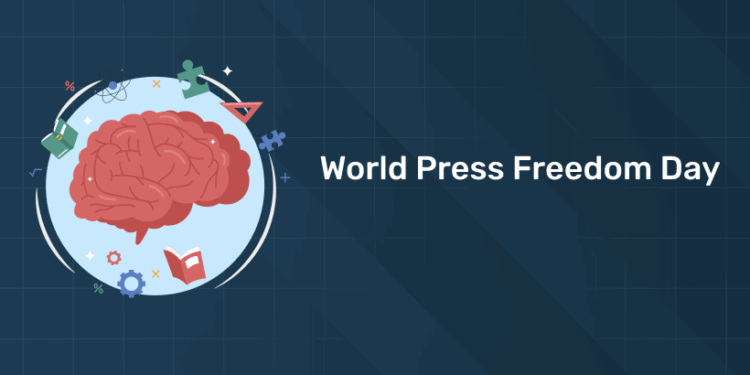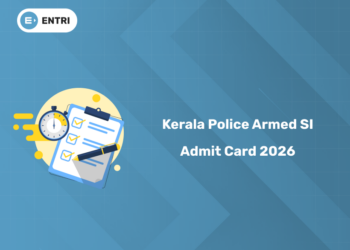Table of Contents
On May 3, 2025, World Press Freedom Day (WPFD) will be observed. This UNESCO initiative serves to promote the role of press freedom globally while raising awareness about the critical work of journalists and media organizations. WPFD encourages governments to uphold their commitments to press freedom, while offering media professionals an opportunity to reflect on their ethical responsibilities. As stated on UNESCO’s website, the day:
“acts as a reminder to governments of the need to respect their commitment to press freedom and is also a day of reflection among media professionals about issues of press freedom and professional ethics. It is a day to express support for media organizations that face restrictions on their freedom and a time to remember journalists who have lost their lives in the pursuit of truth.”
World Press Freedom Day 2025 Date – May 3
In this article readers can get a glimpse on
- History and Objective of World Press Freedom Day
- World Press Freedom Day Theme 2025
- World Press Freedom Day Quiz
World Press Freedom Day History
1: Who was the first woman President of India?
World Press Freedom Day was proclaimed by the UN General Assembly in December 1993, following the recommendation of UNESCO’s General Conference. Since then, 3 May, the anniversary of the Declaration of Windhoek is celebrated worldwide as World Press Freedom Day.
May 3 acts as a reminder to governments of the need to respect their commitment to press freedom. It is also a day of reflection among media professionals about issues of press freedom and professional ethics. It is an opportunity to:
- celebrate the fundamental principles of press freedom;
- assess the state of press freedom throughout the world;
- defend the media from attacks on their independence;
- and pay tribute to journalists who have lost their lives in the line of duty.
Free UPSKILLING Courses!
Take your first step toward mastering in-demand skills, acing interviews, and securing top-tier jobs with Entri's free upskilling courses.
Start Learning!World Press Freedom Day Theme 2025
The official theme for World Press Freedom Day 2025 is “Reporting in the Brave New World: The Impact of Artificial Intelligence on Press Freedom and the Media.” This year’s theme brings attention to how emerging technologies, especially artificial intelligence, are reshaping the field of journalism. AI tools are now influencing how news is gathered, produced, and distributed, creating both opportunities and risks for media professionals. While these tools can assist with data analysis, content automation, and language translation, they also pose serious concerns regarding misinformation, algorithmic bias, surveillance, and the spread of deepfakes.
This theme serves as a call to action for governments, media outlets, tech companies, and the public to reflect on how AI should be governed in ways that uphold freedom of expression and the right to access reliable information. It reinforces the need for transparency, ethical standards, and accountability in both journalism and technology development. In a time when public trust in media is vulnerable, this theme emphasizes that responsible reporting and digital literacy are crucial to protecting democracy. The 2025 theme also aligns with UNESCO’s ongoing commitment to promoting press freedom and ensuring that new technologies serve the public good rather than undermine journalistic integrity.
World Press Freedom Day Themes (2006–2025)
World Press Freedom Day, commemorated every year on May 3, celebrates the fundamental principles of press freedom and pays tribute to journalists who have lost their lives in the line of duty. Each year, UNESCO announces a theme that reflects the pressing issues facing journalists and the media. Here are the themes from recent years:
-
2006: Media and Good Governance
-
2007: Safety and Security of Journalists and the Fight Against Impunity
-
2008: Access to Information and the Empowerment of People
-
2009: Dialogue, Mutual Understanding and Reconciliation
-
2010: Freedom of Information: The Right to Know
-
2011: 21st Century Media: New Frontiers, New Barriers
-
2012: New Voices: Media Freedom Helping to Transform Societies
-
2013: Safe to Speak: Securing Freedom of Expression in All Media
-
2014: Media Freedom for a Better Future: Shaping the Post-2015 Development Agenda
-
2015: Let Journalism Thrive! Towards Better Reporting, Gender Equality, and Media Safety in the Digital Age
-
2016: Access to Information and Fundamental Freedoms – This is Your Right!
-
2017: Critical Minds for Critical Times: Media’s Role in Advancing Peaceful, Just and Inclusive Societies
-
2018: Keeping Power in Check: Media, Justice and The Rule of Law
-
2019: Journalism and Elections in Times of Disinformation
-
2020: Journalism without Fear or Favour
-
2021: Information as a Public Good
-
2022: Journalism under Digital Siege
-
2023: Shaping a Future of Rights: Freedom of Expression as a Driver for All Other Human Rights
-
2024: A Press for the Planet: Journalism in the Face of the Environmental Crisis
-
2025: Reporting in the Brave New World: The Impact of Artificial Intelligence on Press Freedom and the Media
These themes reflect UNESCO’s ongoing commitment to promoting press freedom and addressing the evolving challenges faced by journalists worldwide.
If you would like this information presented in a different format or need further details on any specific theme, feel free to ask!
World Press Freedom Conference (WPFC) 2025
The World Press Freedom Conference 2025 will be held from May 5 to 7, 2025, in Brussels, Belgium, marking a major international gathering of journalists, scholars, civil society actors, and media leaders. Organized by UNESCO, the conference provides a global platform to discuss urgent issues affecting press freedom, particularly in the context of digital transformation. This year’s sessions will focus on how Artificial Intelligence is influencing media practices—from content creation and verification to the business models that support journalism. Participants will also explore legal, ethical, and safety concerns linked to AI-driven surveillance and algorithmic control over information flow.
The event will include expert panels, workshops, and networking sessions, offering insights into ways AI can be responsibly integrated into the news industry. A key highlight will be the signature global event on May 7, hosted at Bozar, the Center for Fine Arts in Brussels. This special day will spotlight how the public’s right to trustworthy information can be protected in an AI-powered world. The conference also ties into the broader movement inspired by the Windhoek Declaration of 1991 and Windhoek+30 of 2021, both of which emphasize the need for independent, pluralistic, and free media. By focusing on the future of journalism in the age of AI, WPFC 2025 aims to create meaningful strategies to protect the values of transparency, accountability, and truth in the global media landscape.
Free UPSKILLING Courses!
Take your first step toward mastering in-demand skills, acing interviews, and securing top-tier jobs with Entri's free upskilling courses.
Start Learning!World Press Freedom Day: Origins & Purpose
In December 1993, the United Nations General Assembly declared World Press Freedom Day, following the recommendation of UNESCO’s General Conference. Since then, the anniversary of the Declaration of Windhoek has been observed as World Press Freedom Day on May 3rd.
The historic link made between the freedom to seek, transmit, and receive information and the public good remains as relevant today as it was when it was signed 30 years ago. During the World Press Freedom Day International Conference, special commemorations honoring the 30th anniversary are planned.
The third of May serves as a reminder to governments that they must uphold their commitment to press freedom. It’s also a day for media professionals to focus on subjects like press freedom and professional ethics. It’s a chance for you to:
- the essential principles of journalistic freedom are honored;
- evaluate the current situation of press freedom around the world;
- Defend the media’s independence from attacks;
- and pay respect to journalists who have died while doing their jobs.
Many IFJ affiliates are taking action to mark World Press Freedom Day on 3 May. Here is a non exhaustive list of their initiatives.
Cambodja: During World Press Freedom Day, CamboJA, in collaboration with UNESCO and other World Press Freedom Day working group CSO partners, will host a face-to-face debate to discuss and better understand the potential impact of restrictive legislation on fundamental freedoms, including the sub-decree on the establishment of the National Internet Gateway (NIG), the sub-decree on the management, use, and security protection of personal identity data (PID), and draft law on cybercrime. This year’s main theme will be “Journalism under Digital Siege,” which is the overarching theme.
Estonia: The Estonian Association of Journalists kicks off WPFD2022 with a hybrid conversation on media ethics, media freedom, and journalists’ role in times of crisis titled “In Crisis with Ethics.” Estonia, Ukraine, Russia, and Georgia are among the speakers.
Finland: The Finnish Journalists’ Union is holding a special event in Helsinki to commemorate World Press Freedom Day, which will include a panel discussion about what is missing in Finnish media and journalism.
France: The National Union of Journalists (SNJ-France) will hold a special ceremony for journalists “who died for information” on May 3 at 12:30 p.m. in Place Ghislaine-Dupont-Claude-Verlon-Camille-Lepage in Paris (2nd arrondissement), in the presence of Anthony Bellanger, IFJ General Secretary, and Dominique Pradalié, IFJ Executive Committee member.
The SNJ and the IFJ are also hosting a showing of the film “Hacking Justice” and a debate titled “Freedom, Rehabilitation, and Compensation for Julian Assange” on May 3 from 6 to 10 p.m. in the Paris City Hall auditorium. Cédric Villani, MP; Julian Assange’s family member; Anthony Bellanger, IFJ General Secretary; William Bourdon, lawyer; and David Dufresne, journalist and director.
Indonesia: This year’s WPFD coincides with Eid Al-Fitr, a religious holiday observed by the majority of Indonesian Muslims. As a result, the celebration of the Indonesian Independent Journalists Association will take place after May 3rd. The union will host debates, radio and television talk shows, photo exhibitions, and media training on holistic violence in 20 cities. The event will culminate on June 6 with the release of a report on press freedom in Indonesia.
Myanmar: On 3 May, the Myanmar Journalists Association will commemorate World Press Freedom Day with a round table discussion on “Real News” at the MPC office in Yangon, in order to reach out to more people and combat fake news.
Pakistan: The Pakistan Federal Union of Journalists (PFUJ) has a variety of federation and regional union-level activities scheduled. In honor of World Freedom Day, the following events are planned in the next days: Seminars in Lahore, Karachi, and Islamabad; Candle Vigils in Memory of Martyred Journalists; Regional Union Rallies; and a Memorandum to be sent to the government authorities.
Sri Lanka: A seminar on “Press freedom and journalistic responsibility” will be held by the Federation of Media Employees Trade Unions (FMETU). The Sri Lanka Working Journalists Association and the Free Media Movement have collaborated to host a panel discussion on “Democracy, Social Responsibility, and Responsible Journalism,” which is timely given recent events in Sri Lanka. Journalists interested in attending are invited to use that link to RSVP.
United Kingdom: The National Union of Journalists (NUJ) is hosting a month-long online series of events with speakers who will discuss worldwide risks to journalism. The union’s efforts lobbying for journalist safety will be discussed, as will the use of spyware, the abuse of destructive legal challenges through SLAPPs, and much more. The NUJ website will shortly have registration information. All sessions are free for members to attend. The Slapps Event will take place on May 10th.
Uruguay: The International Federation of Journalists (IFJ), the Uruguayan Press Association (APU), and the International Federation of Journalists of Latin America and the Caribbean (FEPALC) will present a panel discussion at the UNESCO Global Conference on World Press Freedom Day on May 3. The discussion will center on the predicament of regional press workers in the face of digital surveillance and the necessity for collective organizing mechanisms to combat it.
World Press Freedom Day Quotes
- The freedom of the human mind is recognized in the right to free speech and free press.” – Calvin Coolidge
- “Freedom of the Press, if it means anything at all, means the freedom to criticize and oppose.” – George Orwell
- “No prison is big enough to contain free speech.” – Mazen Darwish
- “History has given me the choice of a pen”. – Gao Yu
- “Were it left to me to decide whether we should have a government without newspapers, or newspapers without a government, I should not hesitate a moment to prefer the latter.” – Thomas Jefferson.
- “We have to uphold a free press and freedom of speech- because, in the end, lies and misinformation are no match for the truth.” – Barack Obama
- “Freedom of the press is the mortar that binds together the bricks of democracy- and it is also the open window embedded in those bricks.” – Shashi Tharoor
- “What matters is the information, not what you think about it.” – Anna Politkovskaya
International days are occasions to educate the public on issues of concern, to mobilize political will and resources to address global problems and to celebrate and reinforce the achievements of humanity. Being a journalist isn’t easy because the most important stories that must reach the public can also be the most dangerous and life-threatening. Take time to appreciate all the journalists out there and Have a nice day!
World Press Freedom Day Quiz
Free UPSKILLING Courses!
Take your first step toward mastering in-demand skills, acing interviews, and securing top-tier jobs with Entri's free upskilling courses.
Start Learning!Frequently Asked Questions
What is World Press Freedom Day?
World Press Freedom Day (WPFD) is an annual observance recognized by UNESCO on May 3rd, aimed at promoting and celebrating the fundamental principles of press freedom. It is also a day to remember journalists who have lost their lives in the pursuit of truth. WPFD encourages governments to uphold their commitments to press freedom and media independence. It provides a platform for discussions about the challenges and risks faced by journalists around the world.
Why is World Press Freedom Day important?
World Press Freedom Day is important because it highlights the critical role of journalism in fostering democracy, transparency, and human rights. It serves as a reminder to governments of the need to respect press freedom. Additionally, it brings attention to the issues journalists face, such as threats, censorship, and violence. By observing this day, we acknowledge the sacrifices made by journalists to ensure access to information and freedom of expression.
How does World Press Freedom Day affect journalists?
World Press Freedom Day raises awareness about the risks and challenges that journalists encounter in their work, such as threats, imprisonment, or even death. It encourages journalists to reflect on their ethical responsibilities and the vital role they play in a functioning democracy. The day also fosters solidarity and support among media professionals. Furthermore, it highlights the importance of creating a safe working environment for journalists globally.
What are the main challenges faced by journalists today?
Journalists today face multiple challenges, including physical violence, censorship, and digital surveillance. In many regions, journalists are subjected to threats, harassment, and even imprisonment due to their work. The spread of misinformation and disinformation further complicates the landscape, as it undermines the credibility of the media. Additionally, increasing government control over media outlets can stifle independent journalism and hinder press freedom.
How do governments respond to World Press Freedom Day?
Governments respond to World Press Freedom Day by reaffirming their commitment to press freedom and the safety of journalists. Some governments use the occasion to publicly support press freedom initiatives and promise reforms. However, in some countries, the day serves as a reminder of the ongoing struggles faced by media professionals, especially in nations where censorship is prevalent. This duality highlights the global divide in press freedom protections.
What is the significance of the WPFD theme each year?
Each year, UNESCO selects a theme for World Press Freedom Day to address a specific issue related to press freedom. The theme serves as a focal point for discussions and initiatives surrounding current challenges in journalism. It helps raise awareness and focuses attention on areas where press freedom is most at risk. By having a yearly theme, the observance remains relevant and adaptable to emerging trends and threats in media.
How is World Press Freedom Day observed globally?
World Press Freedom Day is observed globally through conferences, discussions, and events hosted by media organizations, governments, and civil society groups. These events provide a platform for professionals to engage in dialogue about press freedom and the safety of journalists. Additionally, many countries hold memorials for journalists who have lost their lives in the line of duty. Social media campaigns and educational outreach also play a vital role in spreading awareness about the importance of press freedom.
What role do international organizations play in World Press Freedom Day?
International organizations, such as UNESCO and Reporters Without Borders, play a key role in organizing events, advocating for press freedom, and supporting journalists worldwide. UNESCO, as the lead UN agency, provides resources and coordinates international discussions on pressing issues related to press freedom. Other organizations work to document violations of press freedom and provide assistance to journalists in danger. These groups help amplify the voices of those who face persecution for their work.
How does World Press Freedom Day contribute to democracy?
World Press Freedom Day contributes to democracy by promoting free and independent journalism, which is a cornerstone of any democratic society. A free press ensures that citizens are informed and can hold governments accountable for their actions. It also facilitates open dialogue and the exchange of ideas, which is essential for the functioning of democracy. By advocating for the protection of journalists and press freedom, WPFD supports the fundamental principles of democratic governance.
What actions can individuals take to support press freedom?
Individuals can support press freedom by staying informed about global press freedom issues and sharing relevant information within their networks. Supporting independent media outlets and journalists who are committed to providing accurate, unbiased reporting is also essential. People can also participate in campaigns and petitions that call for the protection of journalists and the freedom of expression. Finally, advocating for legislative changes that safeguard press freedom at local and international levels can make a significant impact.












